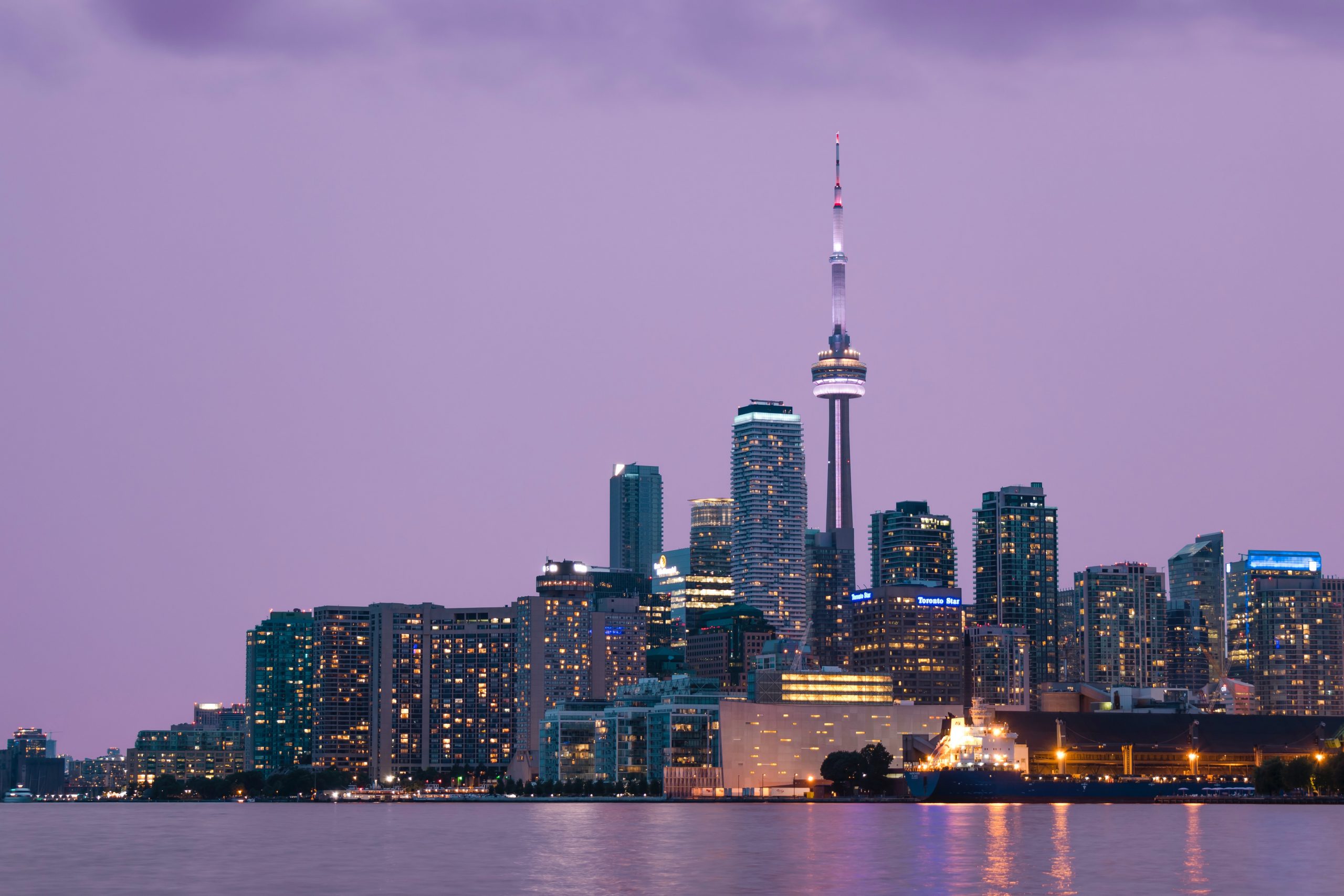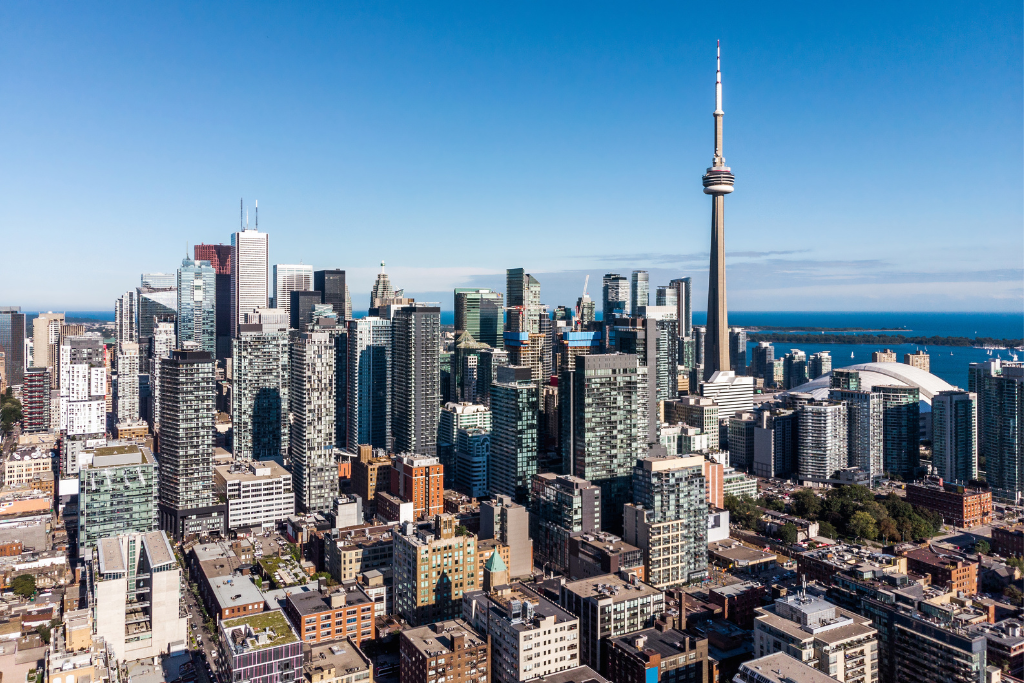Public transit in Ottawa vs. Toronto
Public transit Fares in Ottawa
The city of Ottawa has two city transportation systems. On the Quebec side of the Ottawa River, the Société de Transport de l’Outaouais, generally known as STO, dominates public transit. You can pay with cash on the bus while purchasing tickets and day passes (Occasional Multi-pass) at service points and recharge stations at specific pharmacies, convenience stores, and malls. Young children under five travel for free.
On the Ontario side of the Ottawa River, OC Transpo runs buses, and the O-Railway, Ottawa’s light rail train. You can buy tickets and day passes with cash on the bus, with a credit card, or cash at any O-Train stop, some pharmacies, grocery stores, and the CF Rideau Centre. Children under the age of seven can travel for free.
The fares for OC Transpo service are as follows:
Public transit fares in Ottawa
|
Type of fare |
Rate |
|
Per ride (Adult & Young) |
$3.70 |
|
Per 1 day |
$11.25 |
|
Per 3 days |
$27.75 |
|
Per 5 days |
$44.50 |
|
Per 7 days |
$52.75 |
|
Monthly pass |
$125.50 |
The cost of a public transit monthly pass in Ottawa is $125.50 for the OC Transpo.
Public transit in Toronto
The regional transit organization of Toronto is the Toronto Transit Commission (TTC), the third-largest transport system in all of North America. It covers the Greater Toronto Area, including Toronto and the nearby municipalities (GTA).
The TTC operates four subway lines in Toronto, and there are two main lines — Line 1, which runs north/south, and Line 2, which runs east/west. Two additional shorter lines cover Scarborough and Don Mills.
Buses are equipped to accommodate wheelchairs and strollers. Upon boarding the bus, passengers pay their fare at the machine next to the driver. To travel to other GTA municipalities, commuters can take the commuter GO train from Union Station, Toronto’s top transport hub.
Public transit fares in Toronto
|
Type of fare |
Rate |
|
Single ticket (PRESTO one-ride ticket) |
$3.35 |
|
Daily pass (PRESTO day pass ticket) |
$13.50 |
|
Fair pass Transit Discount |
$2.10 |
|
Monthly Pass |
$156.00 |
Toronto Transit Commission (Sept 2023)
Cost of groceries in Ottawa vs. Toronto
The cost of groceries in Ottawa vs. Toronto is compared below:
|
Groceries costs |
Ottawa |
Toronto |
|
Milk (regular), (1 gallon) |
$11.04 |
$14.39 |
|
Loaf of Fresh White Bread (1 lb) |
$3.21 |
$3.25 |
|
Rice (white) (1 lb) |
$1.99 |
$2.07 |
|
Eggs (regular) (12) |
$4.39 |
$4.55 |
|
Local Cheese (1 lb) |
$8.07 |
$7.33 |
|
Chicken Fillets (1 lb) |
$7.18 |
$7.75 |
|
Beef Round (1 lb) |
$9.28 |
$9.14 |
|
Apples (1 lb) |
$2.18 |
$2.53 |
|
Banana (1 lb) |
$0.75 |
$0.75 |
|
Oranges (1 lb) |
$1.73 |
$2.57 |
|
Tomato (1 lb) |
$2.09 |
$2.38 |
|
Potato (1 lb) |
$1.18 |
$1.75 |
|
Onion (1 lb) |
$1.17 |
$1.80 |
|
Lettuce (1 head) |
$2.97 |
$3.44 |
|
Bottle of Wine (Mid-Range) |
$17.00 |
$18.00 |
|
Domestic Beer (0.5 liter bottle) |
$3.52 |
$3.26 |
|
Imported Beer (12 oz small bottle) |
$3.32 |
$3.63 |
|
Average monthly cost of groceries for 1 person |
$324.28 per month. |
$354.36 per month. |
Numbeo-Ottawa (Sept 2023) & Numbeo-Toronto (Sept 2023)

What to do in Ottawa vs. Toronto
Entertainment in Ottawa
Here’s what you can do in Ottawa:
- You can visit Parliament Hill or take a stroll along the Rideau Canal. Visit the National Gallery of Canada if you enjoy the arts and museums.
- Shop and eat at the ByWard Market — a venerable farmer’s market and a favorite hangout for bars and restaurants.
- Try whitewater rafting, kayaking, and bungee jumping on the Ottawa River.
- Join the festivities at Ottawa’s various festivals. Experience Canada Day, the nation’s largest party. During the Canadian Tulip Festival, ogle over a million tulips.
- Join the host for a party at the RBC Bluffest, Ottawa Chamberfest, and Ottawa Jazz Festival.
There are unlimited activities to choose from!
The culinary landscape in Ottawa is constantly being raised to tastier new heights by talented chefs. You’ll always have a highly rated restaurant nearby.
The museums in the Ottawa region regularly include unique exhibits, with the Museum of Nature particularly noteworthy for its displays of stuffed animals, dinosaurs, and minerals.
Entertainment in Toronto
Toronto is known for its natural beauty, which includes magnificent lake vistas from the tops of the cliffs. Hiking is the most popular activity, and you can either drive up or hike the 300-foot cliffs. Additionally, Bluffer’s Park has a sandy beach with areas for picnics.
The incredible library system and accessibility to a plethora of community centers with greatly subsidized activities like yoga, swimming lessons, painting, and learning to code are just a few of the attractions. There are also museums, galleries, film festivals, live music venues, opera, ballet, musicals, and theater productions of all sizes.
The downtown area is packed with skyscrapers, exotic restaurants, and several other attractions. The Sky Pod in CN Tower is one of Toronto’s most thrilling experiences. You can even see Niagara Falls and New York State from up there. Moreover, the bars in King West, Queen West, and Ossington let you enjoy the nightlife to its fullest.
Cost of entertainment in Ottawa vs. Toronto
In Ottawa, a three-course meal at a mid-range restaurant costs only $53.75, compared to about $55 in Toronto. In Calgary, an adult must pay $83.21 a month for a fitness club, whereas in Toronto, that cost is $72.73. The price of a movie ticket for an international release in Ottawa is $16.50 compared with $16.00 in Toronto.
|
Entertainment costs |
Ottawa |
Toronto |
|
Mid-range restaurant meal |
$53.75 |
$55.00 |
|
Taxi 1h |
$50.00 |
$33.00 |
|
1 cinema ticket |
$16.50 |
$16.00 |
|
Total |
$120.25 |
$104.00 |
Numbeo-Ottawa (Sept 2023) & Numbeo-Toronto (Sept 2023)
Cost of housing in Ottawa vs. Toronto
Ottawa’s housing market remains relatively stable. Renting a 1-bedroom apartment in the city is an affordable option at $1,712.22 versus Toronto at $2,280.60, and the cost of purchasing a house has seen only minor fluctuations compared to other years. When compared to Toronto, Ottawa typically offers lower and more consistent housing costs, making it an attractive destination for those looking to rent or buy a home.
Cost of Housing in Ottawa vs. Toronto
In the tables below, you’ll find two charts that display the average cost of renting an apartment, including two apartment types, and the average home price in Calgary vs. Toronto.
Cost of rent in Ottawa vs. Edmonton
|
Area/Neighborhood |
1-bed apartment |
3-bed apartment |
|
Ottawa (Outside of Center) |
$1,712.22 |
$2,417.83 |
|
Toronto (Outside of Center) |
$2,280.60 |
$3,434.43 |
Numbeo-Ottawa (Sept 2023) & Numbeo-Toronto(Sept 2023)
Cost of buying a property in Ottawa vs. Toronto
|
Area/Neighborhood |
Average home price |
|
Ottawa |
$643,600 |
|
Toronto |
$1,141,400 |

Job opportunities in Ottawa vs. Toronto
For many years, Ottawa has led the world in telecommunications innovation. The capital of Canada is currently one of North America’s most vibrant and varied innovation centers.
Companies worldwide are drawn to Ottawa by its high concentration of technology expertise, affordable business costs, and high standard of living. It is Canada’s Silicon Valley, with a high concentration of engineering talent. Given that Ottawa is the nation’s capital, the federal government is the largest employment sector.
If you have talent, Toronto’s job market is robust. Technology, healthcare, and finance are a few industries that are always booming. Toronto’s economy is extremely diversified and is the global leader in biotechnology and bioengineering. The most highly paid occupations are web developers, HR managers, electrical engineers, financial advisors, and healthcare officers.
Salary comparison in Ottawa vs. Toronto
The table below compares the average salaries of common professions in Toronto and Ottawa:
|
Professions |
Average salary in Ottawa |
Average salary in Toronto |
|
Software Engineer |
$109,990.40 |
$109,990.40 |
|
Data Scientist/Analyst |
$95659.20 |
$100,630.40 |
|
Registered nurses and registered psychiatric nurses |
$85,280 |
$79,040 |
|
Financial advisors |
$79,996.80 |
$74,672 |
|
Audio and video recording technicians |
$54,080 |
$63,440 |
Government of Canada Job Bank (Nov 2023)

Cost of living in Ottawa vs. Toronto
Average monthly living costs in Ottawa vs. Toronto
In terms of living expenses, the cost of living in Ottawa is more affordable than the cost of living in Toronto. The table below compares the cost of living in both cities, considering accommodation, groceries, transportation, and utility costs:
|
Category |
Monthly cost in Ottawa |
Monthly cost in Toronto |
|
1 bed apt rent outside city center |
$1,712.22 |
$2,280.60 |
|
Numbeo’s monthly grocery expenses |
$324.28 |
$354.36 |
|
Utilities Electricity, heating, cooling, water, garbage |
$255.58 |
$208.67 |
|
Internet with 60 Mbps |
$86.58 |
$76.09 |
|
Transit pass |
$125.50 |
$156.00 |
|
Entertainment Meal, taxi, movie |
$120.25 |
$104.00 |
|
Gym membership |
$83.21 |
$72.73 |
|
Total |
$2,707.62 |
$3,252.45 |
Numbeo-Ottawa (Sept 2023) & Numbeo-Toronto(Sept 2023)
FAQ – The most frequently asked questions about Ottawa and Toronto
What is the biggest difference between Ottawa and Toronto?
Ottawa is the capital city of Canada. The city is smaller than Toronto and offers a slightly less expensive cost of living. One of Ottawa’s biggest advantages is its housing market being much cheaper than Toronto’s. Nevertheless, Toronto can hold better job opportunities and diversity.
Where to Live in Ottawa?
|
Lifestyle |
Neighborhood |
|
Young professionals |
Center town/Lower town and the Glebe |
|
Families |
The Orleans and Kanata |
|
Students |
Vanier and Sandy Hill |
Where to Live in Toronto?
|
Lifestyle |
Neighborhood |
|
Outdoor recreation |
High Park – Swanse, Oshwa, Whitby |
|
Families |
Steeles, Kingsway South |
|
Accessible |
Humber Heights- Westmount |
|
Urban Lifestyle |
Yonge & St. Clair |
Is tax cheaper in Ottawa vs. Toronto?
Income tax rates in Ottawa and Toronto (Ontario)
Applicable tax on the taxable income includes
- 5.05% from $0.00 to $51,446 of annual taxable income.
- 9.15% on the next $51,446 up to $102,894.
- 11.16% on the next $102,894 up to $150,000.
- 12.16% on the next $150,000 up to $220,000.
- 13.16 % on the amount over $220,000.
Canada Revenue Agency (Feb 2024)
Federal tax rates
The federal tax rate is the same in Ottawa and in Toronto. Applicable tax on the annual taxable income includes:
- 15% on annual taxable income from $0.00 to $55,867.
- 20.5% on the annual taxable income from $55,867 up to $111,733.
- 26% on the annual taxable income from $111,733 up to $173,205.
- 29% on the annual taxable income from $173,205 up to $246,752.
- 33% on the annual taxable income over $246,752.
Canada Revenue Agency (Jan 2024)
Sales tax in Calgary vs. Toronto
In Canada, there are three types of sales taxes: the federal GST (5%), the provincial sales taxes PST (varies depending on the province), and the HST, which is a combination of the two. In Ontario, the HST is used, which is equivalent to 13% and applies to purchases of goods and services.
Government of Canada (Sept 2023)
Conclusion
Toronto can offer its residents an eventful everyday life with its bustling nightlife and abundant opportunities. However, if you’re interested in a calmer and less dense city, Ottawa is the perfect place while still providing all the important advantages of Toronto, such as outdoor activities and services. If you are planning to move soon, check out the best moving companies in Ottawa and the best moving companies in Toronto.





